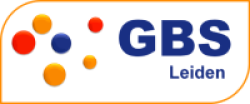
GBS’s vision is to develop and deliver innovative research platforms that help our customers to shorten the translation of new therapies from bench-to bedside.
The need to continually develop novel and clinically relevant models in line with our client’s requirements is a driving force that makes our staff to diligent work and contribute to fulfillment of our vision.
Flexibility and creativity next to scientific and technical expertise are foundations to GBS’s commitment to establish and develop strong working relationships with our clients. GBS also supports and closely collaborates with innovative biomedical start-ups and academic research groups in the Netherland as well as worldwide.
Service development

GBS is conducting free of charge measurement of clot growth in time using a novel method known as thrombodynamic. This assay offers an opportunity to generate mechanistic data on novel drugs that target coagulation cascade or evaluate the clot-growth inhibitory potential of existing anti-coagulation medicines prior to progression into in-vivo models or clinical trials. We would like to encourage you to contact us to discuss and arrange a free-of- charge demonstration of thrombodynamic clot-growth measurement in your samples!
Please contact us if you have an interest in projects currently in development for a status update or if you have any other projects that you would like us to consider developing.
Grants
ThromboSLE project
Our ThromboSLE project has received funding from the European Union’s Horizon 2020 research and innovation programme under Grant Agreement No 807876

ThromboSLE in a nutshell: Patients with systemic lupus erythematosus (SLE) are at high risk for thrombosis, a major and life-threatening complication of SLE. Current diagnostic options to assess clotting disorders are of low predictive value in SLE patients. GBS Leiden will develop ThromboSLE, a test for the accurate thrombosis risk assessment in SLE, with high sensitivity and sensibility. The test will provide rheumatologists and internal medicine specialists that monitor SLE patients with a tool to stratify the SLE patient population for thrombosis risk and prescribe the most effective prophylaxis.
PAVE-a nanovaccine approach for treatment of pancreatic cancer

GBS Leiden is a part of the PAVE consortium which has the ambitious vision to establish a new European network of talented researchers that will advance the concept of nanovaccination to treat pancreatic cancer in the future. This project has received funding from the European Union’s Horizon 2020 research and innovation programme under the Marie Skłodowska Curie grant agreement No 861 190.
The aims of PAVE are:
- to achieve long-term immune suppression of PDAC, using multicomponent nanovaccines;
- to produce adequate preclinical models and assays, which will be more relevant for testing these new immunological approaches, and
- to track vaccine biodistribution in vivo by incorporation of imaging contrast agents within biodegradable particles.
The basic concept is to establish new strategies and approaches for cancer vaccines as a primary objective, in conjunction with modulation of the tumour microenvironment (TME), in the treatment of pancreatic ductal adenocarcinoma (PDAC). In the PAVE project, we will use a new generation of nanoparticle (NP)-based vaccines for long-term immunity. In tandem, one of our study goals will be to also improve the availability of relevant experimental animal models that are replicative of the human immune system, where current new cancer immunotherapies need to be evaluated.
More information at: http://www.pave-cancer .eu
